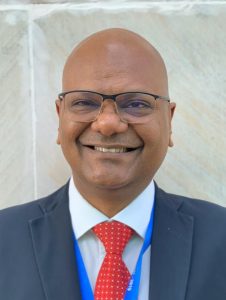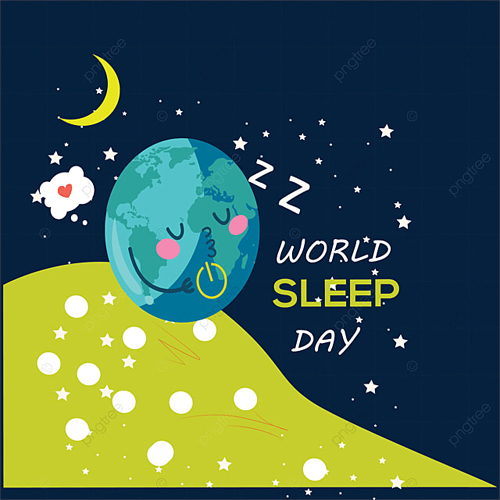World Sleep Day 2022 : Dr. Sandeep Bansal of Dept of Otolaryngology imparts public awareness about sleep disorders
India News, Chandigarh : Well, if the answer to either of the questions is a ‘yes’ then you could be suffering from a condition known as Obstructive Sleep Apnoea. (OSA)


Dr. Sandeep Bansal of Dept of Otolaryngology
The sudden demise of the iconic bollywood disco singer, Bappi Lahiri has caused a buzz in the society. The pertinent question in the wind is, ‘ Can a person succumb to death in his/her sleep?’ Well, the answer is ‘yes’, if you’re suffering from an undiagnosed sleep condition just like the singer.
Obstructive Sleep Apnoea is perhaps the most feared but untreated condition in the society. It lacks awareness. A bad sleep at night is often sorted out by taking a pill at night. Thus, the cause often remains undiagnosed and untreated. OSA is definitely not the ‘didn’t get any sleep at night’ problem that you can put an end to with a sleeping pill!
What makes Obstructive Sleep Apnoea different from the other sleeping disorders? When we say a person is having difficulty to sleep at night, it could be due to two reasons, either the person is unable to fall asleep or the person does fall asleep at night but wakes up several times due to breathlessness.
The two conditions are very different from each other, the first one is a case of insomnia in which you’ll visit a psychiatrist while the second one is a case of Obstructive Sleep Apnoea and that is the topic of discussion here.
OSA is the mother of all major cardiac morbidities and other morbidities in adults as well children. Recent studies have placed the prevalence of OSA at a mean of 22% (range, 9-37%) in men and 17% (range, 4-50%) in women.
It has been observed that obesity predisposes to OSA. Prof. Sandeep Bansal, Incharge of the sleep services of ENT Department, PGIMER said that they see about 30 new patients of OSA every month and undertakes about 15-20 Sleep Studies a month. Even during covid times around 10 studies were being done in the department.He said, though there can be multiple reasons for sleep apnea but Obesity/being overweight is the one of the main causes of OSA which is treatable.
Obstructive sleep apnea (OSA) was identified as an independent risk factor for severe coronavirus disease 2019 (COVID-19) resulting in hospitalization, according to study findings published last week in BMJ Open Respiratory Research.
The importance of OSA becomes all the more important during this Covid Pandemic
“Obstructive Sleep Apnea usually happens because of repetitive narrowing of the airway during sleep despite breathing efforts.” The person will unknowingly stop breathing repeatedly throughout sleep. Once the airway is opened or the breathing signal is received, the person may snore, take a deep breath, or awaken completely with a sensation of gasping, smothering, or choking.
Prof. Naresh Panda, Head, department of ENT said that untreated sleep apnea can lead to potentially serious health complications, such as heart disease, blood pressure, diabetes and depression. It can also leave a person feeling drowsy, increasing the risk of accidents while driving or working and loss of concentration at work, subsequently poor productivity, so an early recognition of the problem and getting it treated is of utmost importance.
Fast facts on Sleep Apnea
Here are some key points about sleep apnea:
- Around 1 in 5 adults have mild symptoms of obstructive sleep apnea (OSA), while 1 in 15 have moderate-to-severe symptoms.
- Approximately 1 billion people globally have this condition, but only 20 percent have been diagnosed and treated.
- Menopausal and postmenopausal women have an increased risk of OSA.
- Sleep apnea is an independent risk factor for hypertension (high blood pressure).
In Children
- OSA —–1% to 3%
- Obesity & High risk children –20-50%
- Enlargement of the tonsils and adenoids is the most common cause of OSA in children and 85% of the children can be cured of their OSA by a Adenotonsillectomy
During sleep, signs and symptoms of pediatric sleep apnea might include
- Snoring,Pauses in breathing, Restless sleep, Snorting, coughing or choking, Mouth breathing, Bed wetting, Sleep terrors
Infants and young children with obstructive sleep apnea don’t always snore. They might just have disturbed sleep.
During the day, children with sleep apnea might
- Perform poorly in school,Have difficulty paying attention, Have learning problems, Have behavioural problems, Have poor weight gain, Being hyperactive
Signs and Symptoms (Adults)
- Excessive daytime sleepiness
- Loud snoring
- Observed episodes of stopped breathing during sleep
- Abrupt awakenings accompanied by gasping or choking
- Awakening with a dry mouth or sore throat
- Morning headache
- Difficulty concentrating during the day
- Experiencing mood changes, such as depression or irritability
- High blood pressure
- Night-time sweating
- Decreased libido
Diagnosis in sleep Lab
Around 15-20 sleep studies in a month in ENT Department of PGIMER and based on the severity of the condition i.e. Apnea Hypopnea Index AHI (AHI, a unit determines sleep apnea severity), treatment is given. An AHI of less than 5 is normal. If the AHI of an individual falls between 5-15, it is considered mild, 16-30 is moderate and more than 30 is severe. Anything more than 15 AHI, it can be life threatening and immediate treatment is advisable.
Talking about the treatment options for OSA, Prof Bansal said there can be medical as well as surgical treatment options in carefully selected patients but life style modifications being the most useful adjunct in both treatment forms.
Treatment
- Lifestyle modifications (Exercise & weight management)
It is a useful adjunct with either if you have to use CPAP machine or take the patient for surgery. Infact, in overweight and obese habitual snorers, it’s the most important treatment for snoring.
- CPAP/ APAP devices: It should be the first line treatment before surgery. The CPAP delivers air with a force which helps in opening up the airway so it acts as a pneumatic splint.
Although CPAP is the most consistently successful and most commonly used method of treating obstructive sleep apnea, some people find the mask cumbersome, uncomfortable or loud.
- Surgical treatment
Those patients who are unable to tolerate CPAP or not compliant to CPAP and a few who doesn’t not want to use CPAP can be considered for various types of surgical procedures after evaluation and choosing the correct procedure to be performed on the correct patient.
With improvement in understanding the disease pathology and with the usage of Drug induced sleep endoscopy (DISE) to evaluate the different levels of obstructions in the airway, the ENT surgeons are able to offer much better surgical treatment plans for the OSA patients with much better success rate to those patients who are not able to tolerate CPAP or not wanting to continue with CPAP due to various reasons.
The bottom line ofcourse is that its highly specialised and challenging surgery which should be done by an expert trained surgeon for this procedures. Prof Bansal and his anaesthetist colleagues Prof Suman Arora and Prof Divya jain have been working on different protocols so as to achieve the most optimum protocol to achieve the right level of sedation to get the patient to near normal sleep so as to correctly analyse the obstruction levels to devise the best surgical plan to suit a particular patient.
On the eve of World Sleep Day, Prof Bansal said that OSA affects an individual’s productivity, be it a child or an adult and is being neglected inspite of the fact that its treatment can prevent so many comorbidities in future. In fact, studies show that OSA can increase the chances of road accidents. This is because people with OSA do not get enough sleep and so can become drowsy while driving.
Even, the drop in oxygen level while sleeping can cause the body to release adrenaline to such a level that it can cause a sudden cardiac arrest. About 19 percent of people with severe sleep apnoea have died as mentioned in recent studies. So, snoring is not a regular event and should not be ignored.
If you know someone who is snorer or someone who finds it difficult to sleep at night due to sudden choking sensation in the neck, you must refer the person to a sleep surgeon for management of this condition. We have and are carrying out many research projects so as to improve the surgical treatment options for OSA.
Dr. Sandeep Bansal MS, FAMS, FIMSA
Professor & Incharge Sleep Lab Department of Otolaryngology and Head Neck Surgery Postgraduate Institute of Medical Education and Research (PGIMER) Sector 12 Chandigarh-160012 Email: drsandeepb@rediffmail.com Governing Body member, Indian Association of Surgeons for Sleep Apnea (IASSA) Member, International Surgical Sleep Society.
Read More : खाली पेट कभी न करें ये काम, नहीं तो होंगे बड़े नुकसान, आज ही बदलें ये आदतें
Connect With Us : Twitter | Facebook | Youtube

